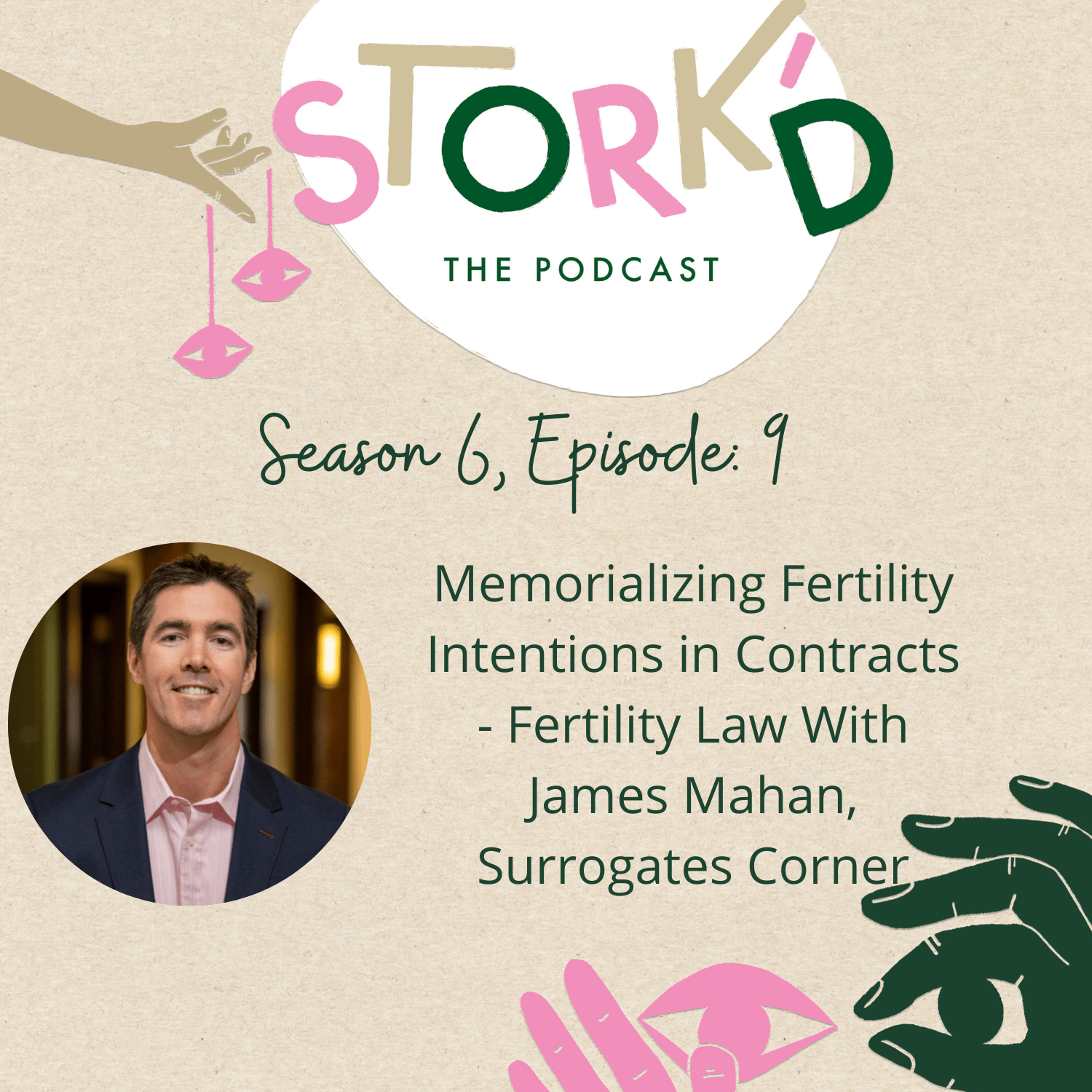Memorializing Fertility Intentions in Contracts - Fertility Law With James Mahan, Surrogates Corner
Going through a fertility journey, you need a great fertility doctor and…. a lawyer? Both intended parents and those helping them conceive by donating sperm, eggs, embryos or serving as surrogates need lawyers to protect their rights and support the intention behind the relationship. James Mahan, a seasoned attorney and founder of The Surrogates Corner, brings his expertise to discuss putting your family-building intentions into a contractIn today’s episode Julia speaks with James to learn all the details of current fertility law practices including how and when to seek legal support, the are current political and ethical trends impacting fertility law and how the law and your emotions intersect. This episode unpacks crucial details about contracts, surrogate rights, donor selection (both egg and sperm), and the ever-evolving legal landscape of surrogacy across different states. While challenges may arise, the fulfillment of building a family outweighs the hurdles. If this topic resonates with you or someone you know, tune in for this informative episode!
IN THIS EPISODE:
[2:56] James shares how he became familiar with surrogacy and his naval background
[8:04] James discusses the differences between being egg, sperm and embryo donors
[12:07] Anonymous donations are not guaranteed, and the trend is moving in that direction
[16:32] Contracts have changed because the entire space has changed, and James discusses various clauses intended parents and surrogates want to be included in their contracts
[23:09] James discusses the under-representation of specific communities looking for donors from that community and how different states have different laws regarding surrogacy
[34:19] James discusses personhood rights, abortion rights and the rights of the surrogate
[39:08] Discussion of embryo donation, storage, gifting embryos and egg-freezing exchange
[45:39] Financial caps for egg donors versus sperm donors and when should a lawyer be engaged
[51:42] James “undefines” family
KEY TAKEAWAYS:
In the past, women who had a child through surrogacy often moved to avoid the stigma of not being able to become pregnant. Surrogacy is now an accepted way of building a family today.
Anonymous donations are not practical for the child for several reasons. Emotionally, they may want to know their parentage, and knowledge is power if there is a medical situation in the future.
Each state has its laws regarding surrogacy. Some states do not allow compensated surrogacy. Get informed about your state law before deciding to become a surrogate or an intended parent in your state.
RESOURCE LINKS:
BIOGRAPHY: James Mahan
I went to graduate school at Cambridge University and found myself boxing for the Cambridge University team. I had the fortunate experience of winning my Cambridge-Oxford bout and earned my Varsity Blue (essentially a varsity letter in the sport). My experience boxing and practicing in the ring became a metaphor for this new blog and law firm, The Surrogate’s Corner.
While still on Active Duty, I was able to return to my alma mater to teach in the Economics Department. During my time teaching at the Naval Academy and throughout my three years in law school, I worked for my parents’ law firm, getting to learn the ropes of the surrogacy field and Third-Party Reproduction law (TPR), which is also referred to strangely as ART law (Assisted Reproductive Technology). That became the focus of my law career. After graduating from Stanford in 2018, I earned my license in California and started taking over the day-to-day operations of the firm’s ART practice.
My experience working with Surrogates has always been meaningful and insightful. I began to hear stories from Surrogates who felt like they were on their own when it came to disagreements or uncertainties regarding the legal aspects of the surrogacy process, especially so after their initial surrogacy contracts were signed. Surrogacy agencies tried to help the matches succeed but often had to be the neutral referee between the Gestational Carrier and Intended Parent(s) when things got challenging. Many attorneys working with Surrogates are only hired to review their contracts. After that, if a Surrogate has questions or issues, they can find themselves independently without legal assistance unless they are willing to pay for it themselves.
DISCLAIMER:
The podcasts available on this website have been produced for informational, educational and entertainment purposes only. The stories and experiences contained within reflect the experiences and opinions of the guest and may contain content found to be triggering by listeners. Listeners should take care to avoid program content which may not be suited to them.
The contents of any podcast do not constitute medical or professional advice, do not reflect the opinions of the podcast or its host and do not create any type of professional relationship between the audience and presenters. No person listening to and/or viewing any podcast from this website should act or refrain from acting on the basis of the content of a podcast without first seeking appropriate professional advice and/or counseling, nor shall the information be used as a substitute for professional advice and/or counseling. Stork'd Podcast expressly disclaims any and all liability relating to any actions taken or not taken based on any or all contents of this site.

